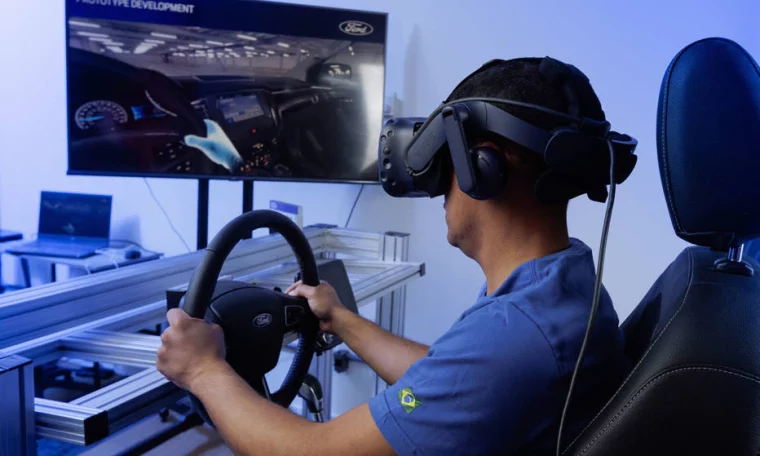
Ford no longer produces cars in Brazil, but expects to earn BRL500 million this year in a new business: engineering exports. The automaker’s technology center in the country has been used in the world to participate in the development of cars produced by the group today and in the future. Work fronts include electrification, autonomous driving and connectivity and design as well as the use of lighter materials in automobiles.
The automaker recently announced the hiring of 500 engineers and specialists at the development center, which operates in six buildings on the Senai campus in Kamakari (BA). The facility is close to where the Ford plant used to be, but not in the same location. Of the 1,500 employees employed in engineering services, 85% are dedicated to global projects.
“We are exporting these services and bringing foreign exchange into Brazil and revenue for our business in the region. Hopefully that will continue to expand, as demand continues to grow”, this Friday, 01, Daniel Justo, Ford’s president in North America, said. Sul announces expected revenue of half a billion with the development center.
One-third of the functionality of Ford-produced cars in the world – for example, lighting, door locks and air conditioning in cars – passes through the automaker’s engineers in Brazil, who were previously originally devoted to local projects. Even though they are provided for other functions within the group, Ford is paid for these services in Brazil.
According to Ford’s vice president Rogelio Golfrub, most of the projects are being developed for the United States and China, the world’s two largest vehicle markets. He points out that, unlike cars produced in Brazil, which cannot compete with global ones, engineering services are competitive and the demand for this type of work is increasing. “There is a global shortage of professionals in this field”, he says.
Golfrub also informs that the center is beyond development and is also a research area with already registered patents, such as graphene, a mineral element that is alloyed with steel and other alloys and used to reduce the weight of automobiles. Shows good results.
transition to electrics
The development center in Bahia is one of Ford’s nine in the world and works on the design of the bodies of electric cars, multimedia systems and autonomous vehicles, among other projects. Worldwide, Ford has an estimated US$50 billion in investments by 2026, in the transition to electric vehicles.
According to Justo, the automaker’s engineering focus in Brazil is on a rapid transition to electrification, rather than development of ethanol-powered technologies, as local competitors are betting on those who don’t believe in the increasingly popular electric vehicles. , Collaborative Clyde Silva



